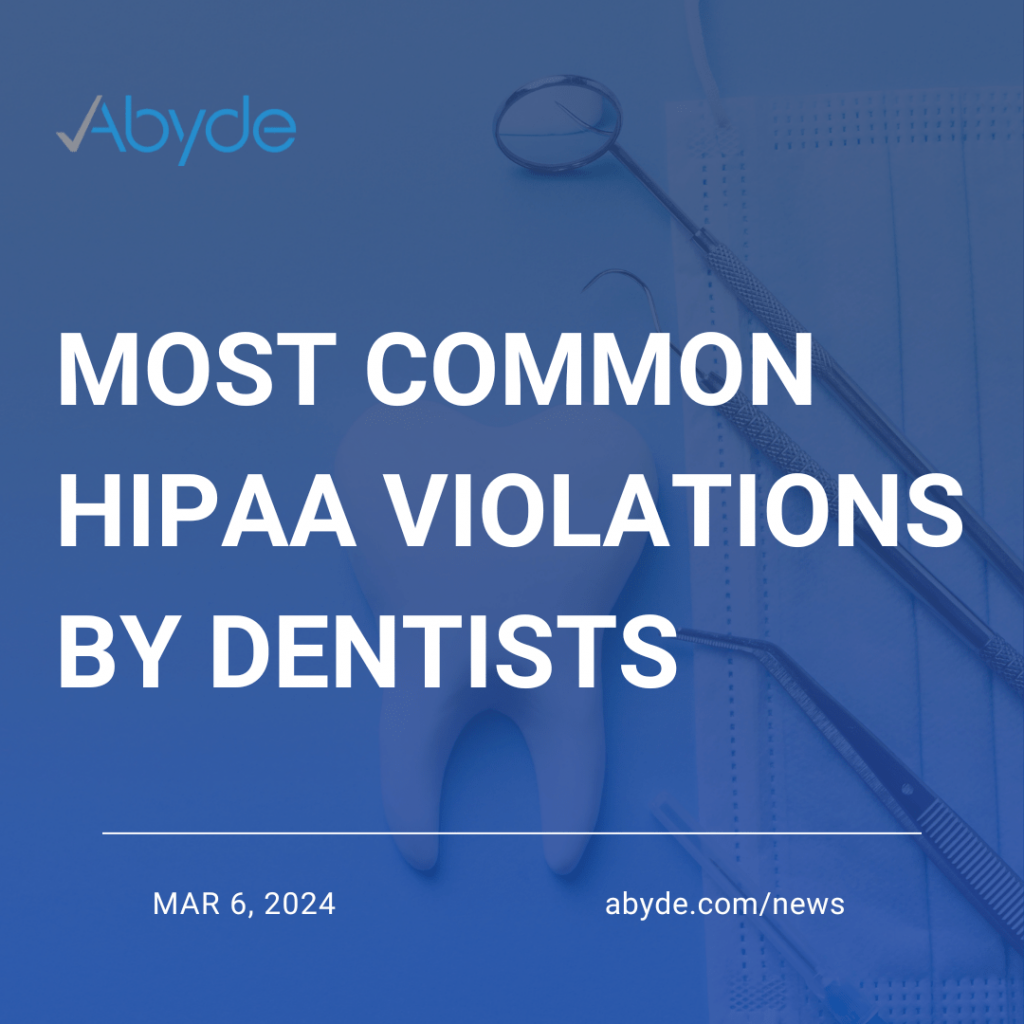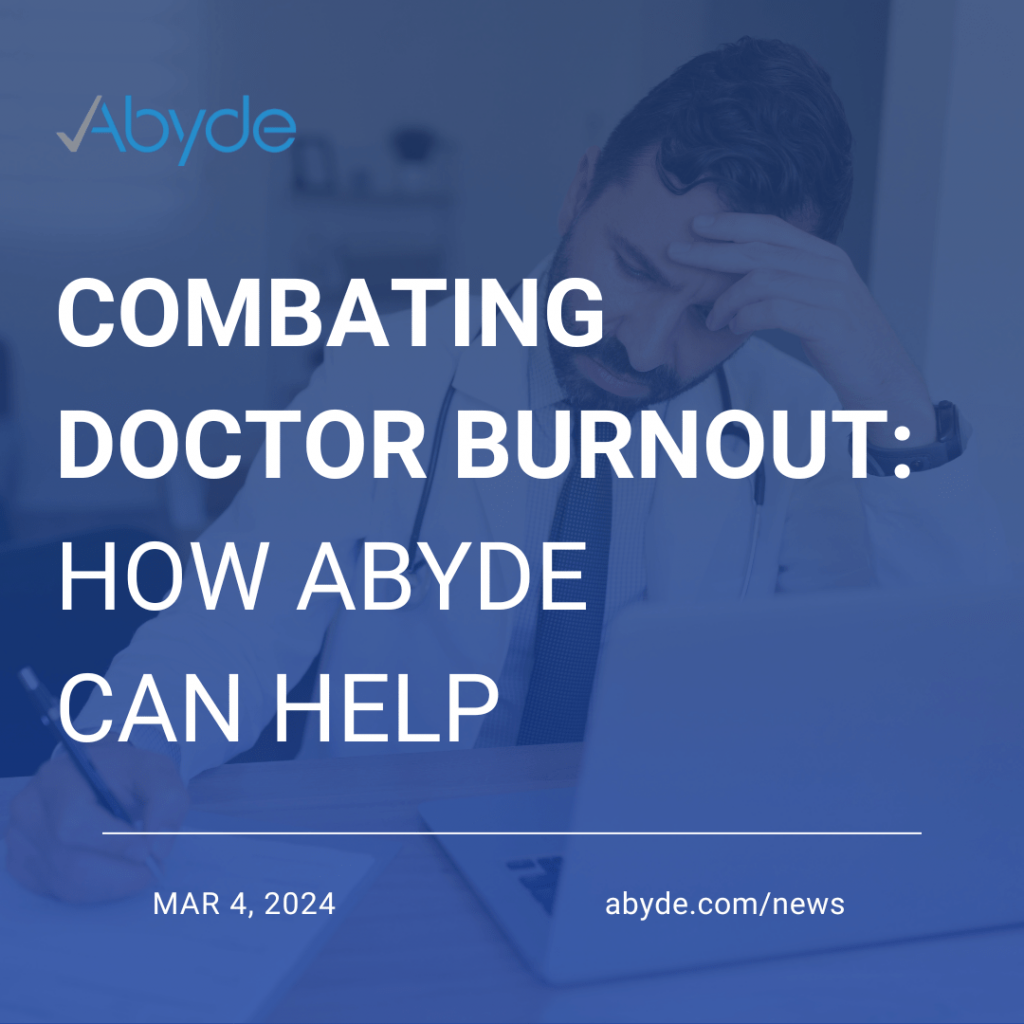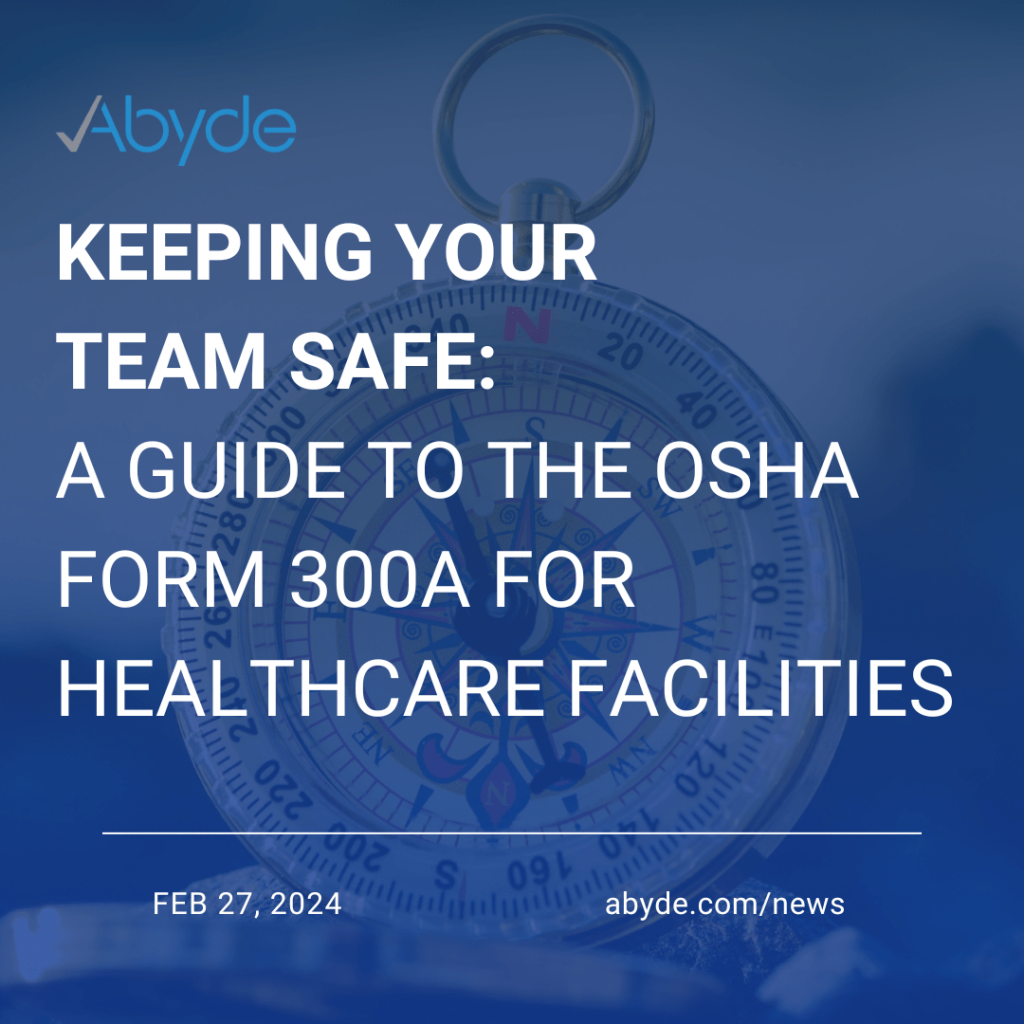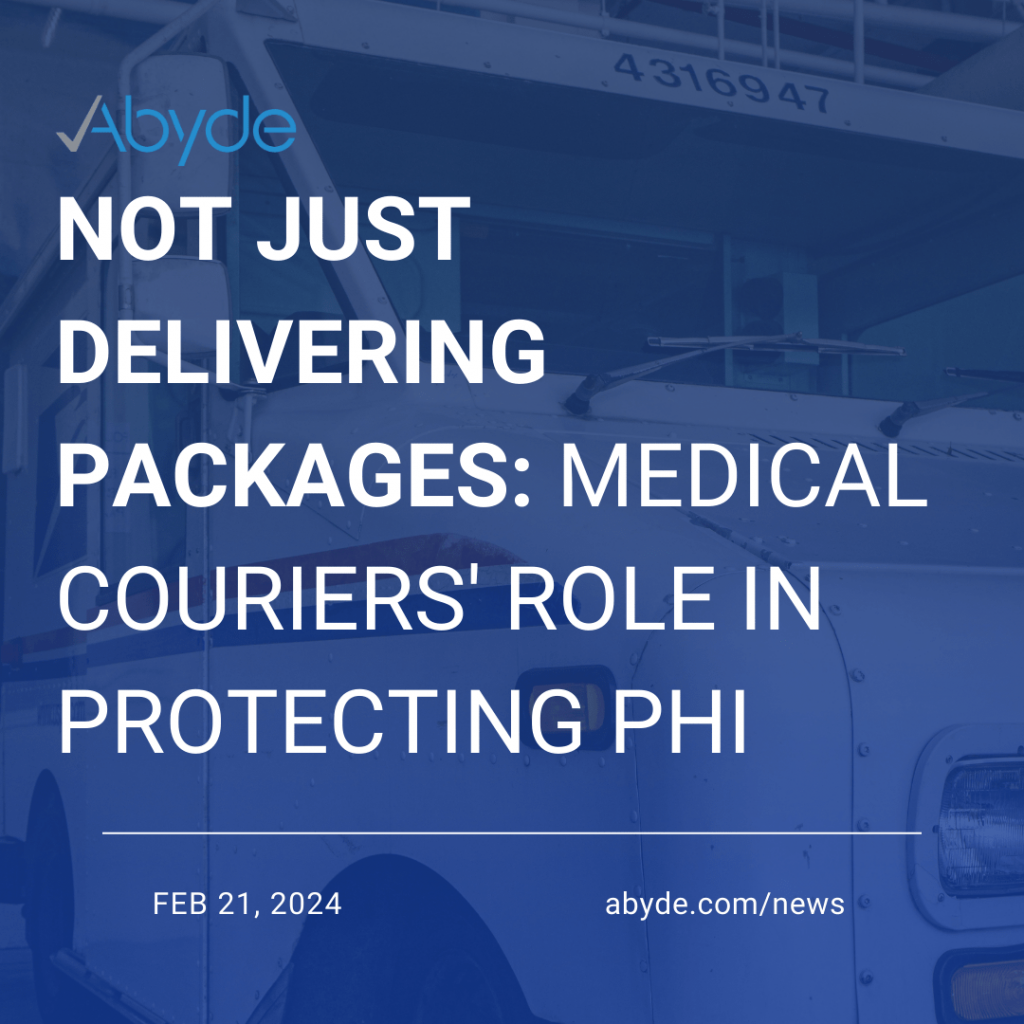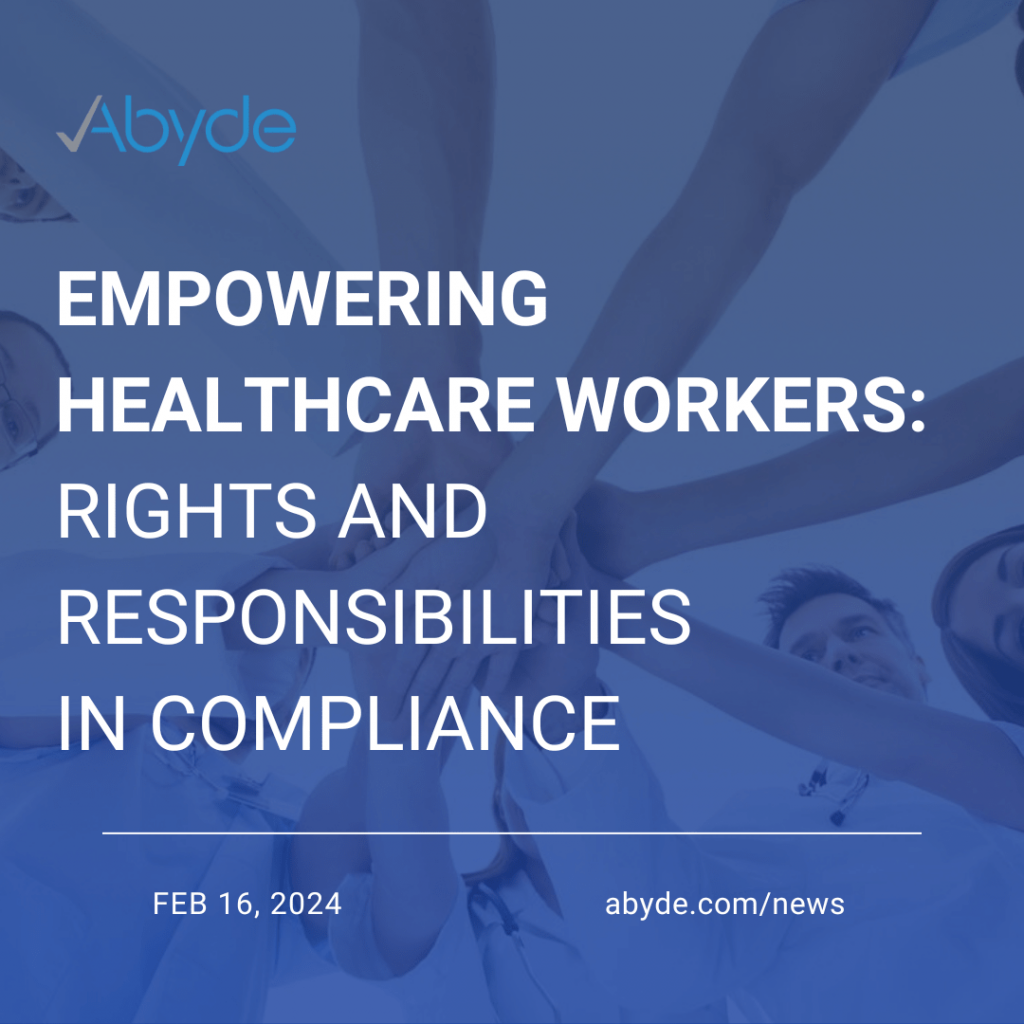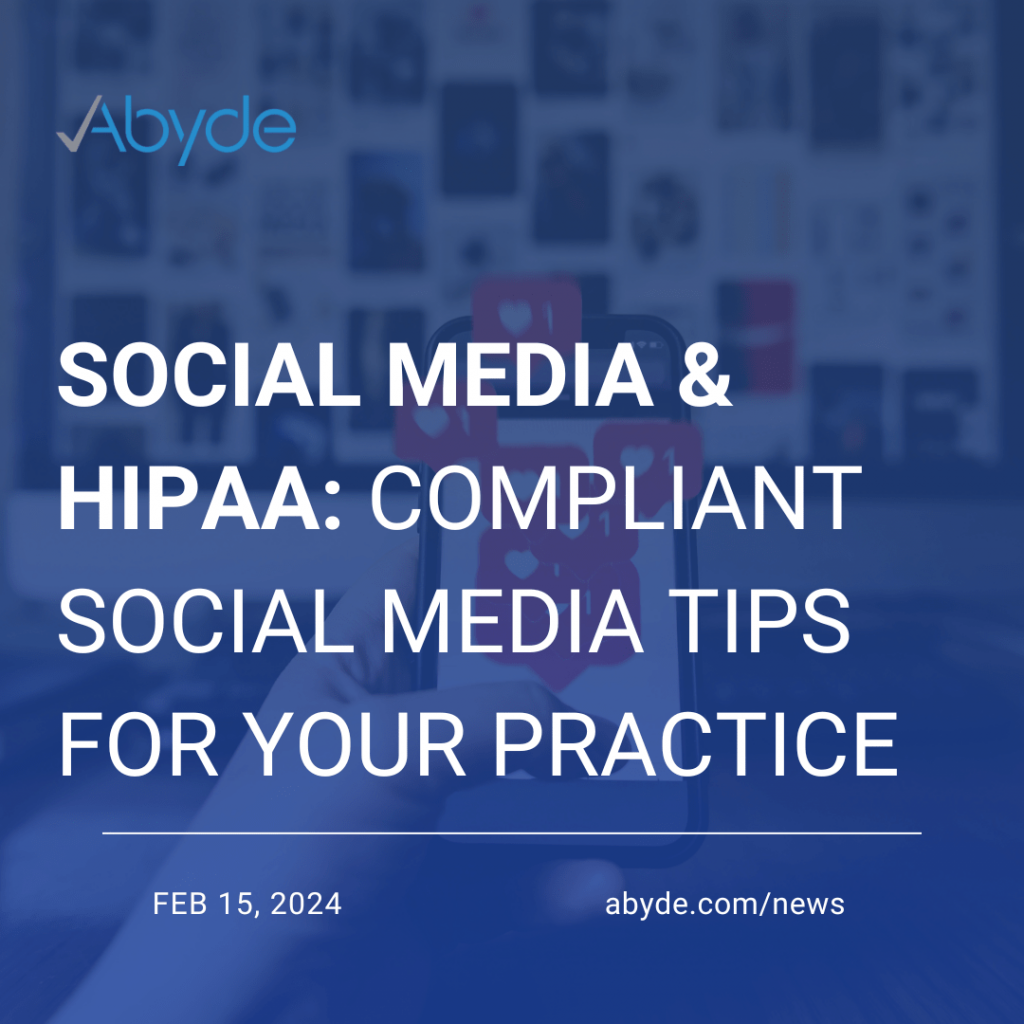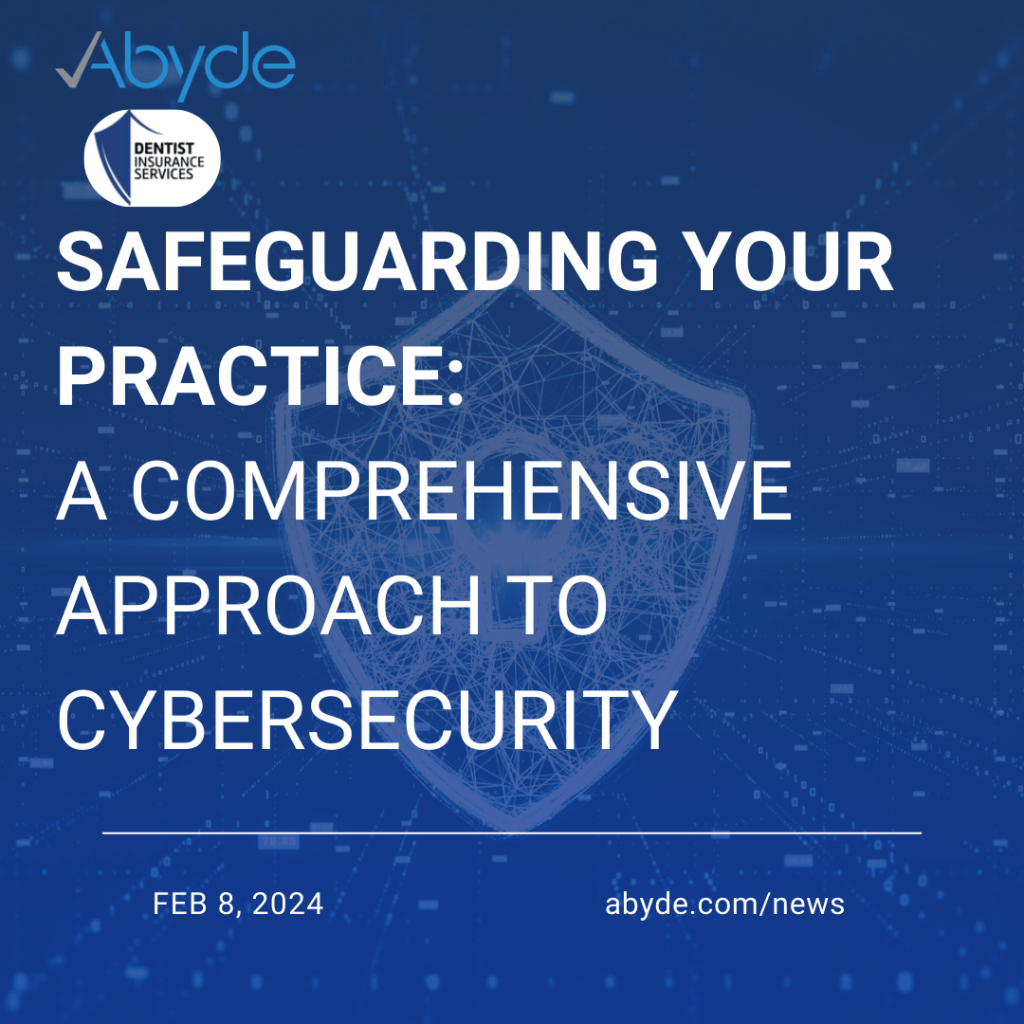March 7, 2024 Ransomware. Even the name sounds ominous! With the Change Healthcare ransomware attack, you might have heard a lot about ransomware in the news lately. While the effects of the attack are wreaking havoc on the healthcare system, you might be wondering what this notorious ransomware is all about. Well, you’ve come to the right place! We’re here to educate you on ransomware and how your practice or organization can be prepared for this cybercrime. What is it, exactly? Ransomware is a form of malware, or malicious software, that encrypts the files of a victim and requires a ransom to access files again. This is a very common way hackers infiltrate healthcare systems and over 4,000 ransomware attacks occur a day! If you’re confused about how ransomware works, here’s a simple example: Dan the Doctor was having an alright day, and then he got an email that went to his practice that he thought would turn it into the best day of his life! The email said he won 20 million dollars! All he had to do was click the link in the email to receive it. He clicked it as soon as possible, already dreaming of spending the rest of his life on the beaches of Hawaii. Spoiler alert: his day was going to get a lot worse. As he clicked the link, ransomware began its sinister magic: encrypting patients’ protected health information (PHI). He couldn’t believe what he did, putting his patients and his practice in jeopardy. Then, to get access to these files again, he had to pay thousands of dollars, or these files would be put online, putting his innocent patients even more at risk. His dreams of Hawaii turned into a very hurt wallet and his patients at risk. While you might think that could never happen to you: email scams, or phishing, are the most common way ransomware attacks are sent. Our simple example is just a story, but it happens often in the healthcare field. For example, the most recent major cybercrime is the ongoing Change Healthcare ransomware attack, in which they paid 22 million dollars in ransom! The OCR is also beginning to fine practices and organizations that do not take the proper precautions against ransomware attacks. The first ransomware attack fine was announced in October, costing the Business Associate (BA) $100,000 in HIPAA fines. What do I do? Now, while ransomware attacks have become extremely prevalent, with a 278% increase in ransomware breaches reported to the OCR, there are precautions you can take. Working with an IT company is key for your practice or business, with prevention being the first line of defense. This includes things like encrypting your files, keeping all software up-to-date, having firewalls, antivirus and more. Additionally, working with a compliance program like Abyde also lowers your risk. By identifying your vulnerabilities and enacting the right protocols, ransomware stands no match! For instance, password updating, proper data handling, access controls, and training, are all different barriers that help your practice or business. Also, if your practice is infected by ransomware, do not pay the ransom, get the infected device offline and off the network, report the breach to the OCR, and get IT experts to investigate the attack. To learn more about how your practice can stay compliant and secure against ransomware attacks, email us at info@abyde.com and schedule consultations for Covered Entities here, and Business Associates here.
Most Common HIPAA Violations by Dentists
March 6, 2024 Happy National Dentist’s Day! In honor of this special holiday, here’s a cheesy joke. What is a dentist’s favorite animal? A Molar Bear! Now, please stop cringing. We apologize for the bad joke, if we could, we would give all dentists who use our software a little … plaque. Ba Dum Tsss. Alright, now back to the more serious stuff. Dentists play an important role in our health, ensuring our smiles stay healthy and bright. However, they also have another major responsibility: following HIPAA regulations and protecting our protected health information (PHI). Sometimes, dentists slip up on their compliance responsibilities. Here are some of the most common HIPAA hiccups dentists face. Stolen Devices: One of the most common HIPAA violations for dentists is improper handling of stolen devices with PHI. In our tech-savvy world, computers and other devices play an imperative role in the dentist’s office, withholding information on patient’s personal information like billing, medical records, and more. If you have a device with electronically protected health information or ePHI, in your practice, make sure it is encrypted, or in other terms, very secure software that makes sure the right people are the only ones who can access it. Additionally, if a device is stolen, make sure remote deletion is set up correctly, letting you delete sensitive data from it with another device. ePHI in the wrong hands can be dangerous, but with the right precautions, you can keep patients safe. Disregardful Disposal: Another common HIPAA violation for dentists is improperly disposing of protected health information. From creation to disposal, PHi needs to be handled securely by your practice and complaint Business Associates (BAs). We’ve seen the after-effects of mishandled PHI, resulting in hefty fines. For example, a practice in Massachusetts improperly threw out PHI, throwing it in garbage bins outside the practice, and was fined over $300,000. Retaliating Responses: On top of managing your practice’s reputation in person, you have to manage it online. A very common HIPAA violation is disclosing PHI through social media and review sites. While I know it can be hard to not defend your practice, keeping your cool for sure feels way better than losing thousands of dollars to a fine. A California dentist practice learned the hard way by being fined $23,000 for disclosing PHI on Yelp in heated responses. The moral of the story? Keep it short, sweet, and offline. If you want to share a customer testimonial or image of a customer, ensure a media consent form is signed. Now, those are some of the most common HIPAA violations by dentists. Dentists have a lot on their plate, and sometimes, compliance falls on their list of priorities. That’s where Abyde comes in. We’re here to help make compliance simple for your dental practice, with a plethora of compliance resources. We pride ourselves on our efficiency, like turning the daunting Security Risk Analysis (SRA) into a minutes-long questionnaire, pinpointing everything you need to know for your practice. This results in a scorecard, with best practices to avoid HIPAA violations, including the ones mentioned above! The Abyde software also includes engaging training (that does not require you to shut down your practice for all to complete), dynamically generated policies and procedures, documents, like the media consent form, and more. We’re here so you can focus on what’s important, taking care of patients. Have a wonderful Dentist’s Day, and relax, let us take care of the compliance. For more information on how Abyde can simplify compliance for your practice, email info@abyde.com and schedule a consultation here.
Combating Doctor Burnout: How Abyde Can Help
March 4, 2024 Happy Monday! It’s a new week and a fresh start. We hope you’ve been able to enjoy the weekend and relax. Taking care of yourself is key to avoiding burnout and being ready to conquer the next week! Last week, we talked about the importance and positive benefits of employee recognition and appreciation in the workplace. Company productivity dramatically increases when employees are happy and supported. Being satisfied at work is very important, and wards off burnout. Burnout is a hot topic in healthcare, negatively impacting healthcare workers. There are various reasons why healthcare workers experience burnout, such as shortages, the high stress the job brings, and administrative burdens. A recent study found that more than 90% of doctors feel the impact of burnout. Think about that! That’s almost all doctors. Unfortunately, this is nothing new. The CDC recently launched a campaign to combat burnout, called Impact Wellbeing, including resources and best practices for healthcare workers. While there is a variety of resources available for doctors, Abyde has the perfect solution to reduce administrative tasks, taking more off of doctors’ plates. When you’re overwhelmed, the last thing you want to do is think about compliance regulations like HIPAA. That’s why Abyde has you covered. Take a deep breath and relax. With Abyde’s revolutionary software, we take care of the countless hours of administrative work and turn them into minutes. For example, the daunting Security Risk Analysis (SRA)? Yeah, it’s now an intuitive questionnaire of everything you need to know about compliance for your practice. Feel overwhelmed by policies and procedures for your practice? Not knowing where to start in creating these custom policies? Once again, Abyde takes care of that, dynamically generating these documents for you. Have a change-up in your staff? No sweat! Ayde automatically updates all policies and procedures once roles are updated in the software. Need training? Check, and, guess what, our training is super engaging and fun. Need to sign Business Associate Agreements with a new Business Associate? Check – including a document signing portal, keeping all BAAs in order in the software, and we’ll remind you when agreements are near expiration. Need to log a breach and don’t know where to start? Yeah, you guessed it. Check! It’s all in the Abyde software. As you can see, Abyde simplifies compliance. Healthcare burnout is no joke, and Abyde is here to help. Healthcare can be a stressful profession, so Abyde wants to support those who support us. To see how Abyde can simplify compliance for your practice, email us at info@abyde.com and schedule a consultation with us, here.
The Power of Employee Appreciation: How Empowerment Benefits the Workplace
March 1, 2024 Happy Employee Appreciation Day! We here at Abyde know the importance of empowerment, recently being named a top place to work in the Tampa Bay area by the Tampa Bay Business Journal (TBBJ) for the second year in a row. Our team’s dedication is the driving force behind Abyde’s success. Together, we are building a legacy of simplifying compliance for medical practices and business associates in healthcare. Our empowerment and recognition go beyond our Stress-Free Zone with arcade games and weekly catered lunches, but by fostering a supportive environment, competitive compensation, health insurance starting day one, PTO, and more. Employee appreciation doesn’t only improve the happiness of employees, but also the productivity of an organization. For instance, company productivity is up by 31% when employees feel happy and valued. Investing in your employees results in numerous benefits, creating a strong foundation for your practice and organization. Healthcare can be notorious for high burnout rates, with about half of all healthcare staff reporting burnout. That’s where employee recognition is key, showing your staff how much they are valued and how much their work matters. When an employee feels valued, their job performance can be boosted by 56%, minimizing burnout. That’s why we at Abyde know how stressful compliance can be. Compliance shouldn’t be a chore, but a way to empower employees, creating a safer work environment and a culture of compliance. Truth is, we make compliance fun and simple (yes, those words can be in the same sentence). With our software, we take the stress out of the compliance process and make it efficient. Rather than stressing out over administrative tasks, like the required Security Risk Analysis (SRA), we turned it into an intuitive questionnaire that can be completed in minutes. Having to create personalized procedures and policies? Not a problem with Abyde! Our software does that for you, too. We will dynamically generate HIPAA-compliant policies and procedures for you, ensuring your employees can focus on what’s important, taking care of patients. We have numerous compliance resources for your team to feel empowered and confident while handling Protected Health Information (PHI). Once again, Happy Employee Appreciation Day! Make sure your staff knows how valued they are today and every day. Ready to empower your team and simplify compliance for your practice/organization? Schedule a consultation today! Click here for Covered Entities and here for Business Associates.
Make the Most of Your Extra Day: The First Step of Compliance
February 29, 2024 Happy Leap Day! With the extra 24 hours, what do you plan to do? First, if you haven’t, remember to report your small breaches to the OCR today, but what else? I know you might say do nothing and sit on the couch later, and while that sounds great, we have some better ideas for you. We at Abyde believe in self-improvement and betterment, appreciating every day and making an impact. This once-in-every-four-year occasion is an opportunity to do something new and start a task you’ve been putting off. For many, this could be compliance. Compliance software is key, knowing your practice is prepared if used correctly. Investing in compliance software is a small cost compared to how expensive violations can be, with the smallest HIPAA fines costing $137 and the least expensive OSHA fines costing $1190. While perfect compliance can’t be achieved in one day (if it could, we wouldn’t be here!), by taking the first step today and using Abyde’s software, compliance is easily within your reach, with us simplifying the process and being with you every step of the way. Compliance is a continuous process, but it requires the first step to build that culture of compliance for your practice or organization. A culture of compliance takes time, training your staff, having all understand the importance of compliance, the precautionary measures that need to be taken to secure Protected Health Information (PHI), and ensuring a safe working environment for all. We at Abyde know how precious your time is, so we offer quick 15 to 20-minute demos and consultations. Additionally, Abyde prides itself on how we make the compliance process efficient and fun. Complete the once daunting Security Risk Analysis, or SRA, in minutes with our intuitive and simple questions. Drastically cut down on time with our dynamically generated Policies & Procedures, having custom documentation created for you in seconds. Learn from our numerous resources in the software on what it means to be compliant. If you have any questions, experience white-glove service from our team of compliance experts, only a short call or message away. While an extra day might feel insignificant, all it takes is that first step on the journey to compliance. We hope you enjoy your extra day, and make that first step by scheduling a short demo or consultation (Business Associates, click here, please!) with our experts today. If you still have questions, email us at info@abyde.com, or call 1.800.594.0883.
Keeping Your Team Safe: A Guide to the OSHA Form 300A for Healthcare Facilities
February 27, 2024 Hi! Your friends here at Abyde just wanted to remind you that the OSHA Form 300A deadline is quickly approaching. The due date for reporting this is March 2nd, 2024. While reporting this vital information might not be the most exciting thing to do with your time, we’re here to make it easy. What is the OSHA Form 300A? The OSHA Form 300A is the yearly report of the injuries and illnesses from the previous year. For most, the Form 300A is the only OSHA form required to be submitted by this due date. This form does not include any personal information from the incidents, just an overall year summary. This document is a crucial tool for organizations to keep their employees safe, documenting safety hazards and preventing future accidents. Is there a more detailed form? Why yes, there is! The OSHA Form 300 is an expanded version of the OSHA Form 300A. The OSHA Form 300 includes personal information, the number of days out, what happened, and more. The OSHA Form 301 has even more specific questions on what happened and the steps taken, including the physician who treated the employee. Both the OSHA Form 300 and 301 have to be updated within 7 days of an incident. These more detailed forms also have to be submitted if you work for a major practice of more than 250 employees or over 100, if you work in a high-hazard industry. Also, OSHA Form 300, 300A, and 301 need to be stored for at least 5 years. How can I fill out the OSHA Form 300A? Well, we are one step ahead of you. With Abyde’s revolutionary OSHA software, log the incident by clicking the Safety & Health Logs section in your dashboard. Once clicking that, choose the type of incident (we require a little more information if it’s a sharps injury), and fill out the required information. Our software log questions model the Form 300 document, so, at the end of the year, you can download a dynamically generated Form 300A, saving the work for you. How do I report this to OSHA? The process is easy. You can report your OSHA 300A form online here. With the Abyde software, we have the OSHA Form 300A completed for you, you can breeze through this requirement, by just putting it into the online form. OSHA also created a video tutorial. How can Abyde help? As you can see, Abyde dramatically simplifies the reporting process, creating a 300A form for you. Just make sure you properly log any workplace injuries or illnesses in the software! While Abyde can’t directly submit the form for your practice, we are more than happy to help you if you have any questions. Current Abyde users can call us at 1.800.594.0883 or chat in our live support option in the software and we will be more than happy to help! To learn more about simplifying OSHA for your practice, send us an email at info@abyde.com or schedule a compliance consultation here.
Not Just Delivering Packages: Medical Couriers’ Role in Protecting PHI
February 21, 2024 While doctors, nurses, and researchers often take center stage in healthcare, there’s another critical group working tirelessly behind the scenes: medical couriers. These are the logistics ninjas, the delivery defenders, who ensure vital medical supplies, specimens, and documents reach the right place at the right time. Medical couriers go far beyond simply transporting packages. They handle protected health information (PHI) in various forms, making them subject to HIPAA compliance alongside healthcare providers and health plans. This means they share the responsibility of safeguarding patient privacy and security. Key Responsibilities in Compliance: HIPAA Compliance: A Shared Responsibility Healthcare providers rely on Business Associate Agreements (BAAs) to establish clear expectations and obligations for couriers regarding HIPAA compliance. These agreements outline: The Impact of Compliance: Effective HIPAA compliance by medical couriers benefits everyone: The Future of Couriers and Compliance The future of medical courier services might involve drones and autonomous vehicles for faster deliveries. However, the core responsibilities – data security, adherence to regulations, and understanding the impact on patient privacy – will remain central to their role as HIPAA business associates. Medical couriers are no longer just delivery personnel; they are crucial partners in ensuring healthcare compliance and safeguarding patient privacy. By understanding their critical role and responsibilities, we can appreciate their impact on a healthier and more secure healthcare system. For medical couriers and Business Associates in general, Abyde is your compliance solution. With our newest software, HIPAA for Business Associates, BAs can manage compliance with ease. HIPAA for BAs includes a robust security risk analysis, training for BAs, automated policies and procedures, dynamically generated Business Associate Agreements for Covered Entities and Sub-Business Associates, and much more. To learn more, email hipaa-ba@abyde.com and schedule an educational consultation here.
Empowering Healthcare Workers: Rights and Responsibilities in Compliance
February 16, 2024 The foundation of a strong healthcare practice lies in empowered healthcare workers. These individuals, from doctors and nurses to technicians and therapists, stand on the frontlines, safeguarding our health and well-being. However, with all the demands and complexities of their roles, it’s crucial to remember they have both rights and responsibilities. Read more to see how to empower healthcare workers and the positive benefits of a comprehensive compliance program in your practice. Understanding Worker Rights: Empowerment in Compliance Having a comprehensive compliance program is another way you can empower your team. Abyde can be your solution for this. Our software simplifies compliance and empowers healthcare professionals, allowing them to navigate compliance with ease. Our software includes entertaining training, intuitive security risk assessments, dynamically generated policies, and more. Our simplicity is our strength, empowering Abyde users to know their rights and responsibilities in compliance. To learn more about empowering your practice email info@abyde.com and schedule a demo today.
Social Media & HIPAA: Compliant Social Media Tips for Your Practice
February 15, 2024 Picture this: you’re a doctor, feeling proud after helping a patient overcome a challenge. You snap a selfie with them, post it on your clinic’s Instagram, and bam! Instant HIPAA violation. We’ve seen how social media is about more than just staying connected with friends and family. It’s become a powerful tool for reaching new audiences and having meaningful interactions with other users. If used correctly, social media can be an awesome tool to educate and share the resources your practice provides easily to patients. However, it is important to use social media wisely and know how crucial it is to protect patient information. Social media can be a slippery slope to HIPAA violations if misused. That’s why we’re here today to share with you the best tips and practices for your social media. The Less Information, The Better Double Check Before Posting Have Media Consent Forms Signed While your journey to be famous online might not be as easy as cute cat videos, by prioritizing HIPAA compliance on social media, you can confidently utilize technology to engage with audiences without compromising their privacy. Social media can be complicated, but compliance doesn’t have to be with Abyde. Abyde offers a thorough security risk analysis that dives into not only social media use but all facets of your practice. Abyde also has interactive training, policies and procedures, forms, and more, for your practice to utilize. To learn more about simplifying compliance for your practice, email us at info@abyde.com and schedule a demo here.
Safeguarding Your Practice: A Comprehensive Approach to Cybersecurity
February 12, 2024 The following blog was co-written with Abyde’s partner, Carrie Millar at Dentist Insurance Services. If you would like more information on Dental Insurance Services, please click here to visit their website. In an era where technology plays a pivotal role in healthcare practices, ensuring the security of sensitive patient information is paramount. Cybersecurity threats pose a significant risk to medical practices, and adopting a multi-faceted approach is crucial to safeguard against potential breaches. This article explores the three key components to cyber safeguarding your practice: Strong IT for prevention, a Formal HIPAA compliance program, and Cyber Liability Insurance. 1. Strong IT for Prevention The foundation of any robust cybersecurity strategy is a well-built IT infrastructure. Prevention is the first line of defense against cyber threats. Implementing strong IT measures involves securing networks, regularly updating software and systems, and employing robust firewalls and antivirus solutions. Encryption of sensitive data both in transit and at rest adds an extra layer of protection. Regularly monitoring network activity and promptly addressing any anomalies can help identify potential security breaches early on. Employee training on cybersecurity best practices is equally essential, as human error remains a significant factor in cyber incidents. By investing in strong IT measures, practices can significantly reduce the risk of unauthorized access and data breaches. 2. A Formal HIPAA Compliance Program Compliance with the Health Insurance Portability and Accountability Act (HIPAA) is mandatory for healthcare providers, and it forms a critical aspect of cybersecurity. HIPAA compliance programs, such as Abyde (www.abyde.com), provide a structured framework for ensuring that your practice adheres to the stringent regulations in place. These programs offer comprehensive training for employees, covering topics such as data handling, password management, and recognizing potential phishing attempts. Regular audits and assessments help identify areas of improvement and ensure ongoing compliance. By instilling a culture of compliance within your practice, you not only protect patient information but also mitigate the risk of legal consequences associated with HIPAA violations. 3. Cyber Liability Insurance While prevention and compliance measures significantly reduce the likelihood of a cyber incident, it is crucial to acknowledge that no system is entirely impervious to attacks. Cyber Liability Insurance acts as a safety net in the event of a security breach, providing financial assistance to cover the costs associated with the aftermath. Make sure your comprehensive cyber liability insurance policy includes business income coverage, forensic investigation costs, public relations costs, as well as third-party liability. A great example of this is the Coalition Insurance policy sold by insurance broker Healthcare Professional Insurance Services (www.joinhpis.com) The average cost of a cyber-attack has surged in recent years to almost $400,000 per location and an average of 9 closed business days, making Cyber Liability Insurance an indispensable component of a comprehensive cybersecurity strategy. Having this safety net allows practices to recover more swiftly and continue providing uninterrupted services to patients.

